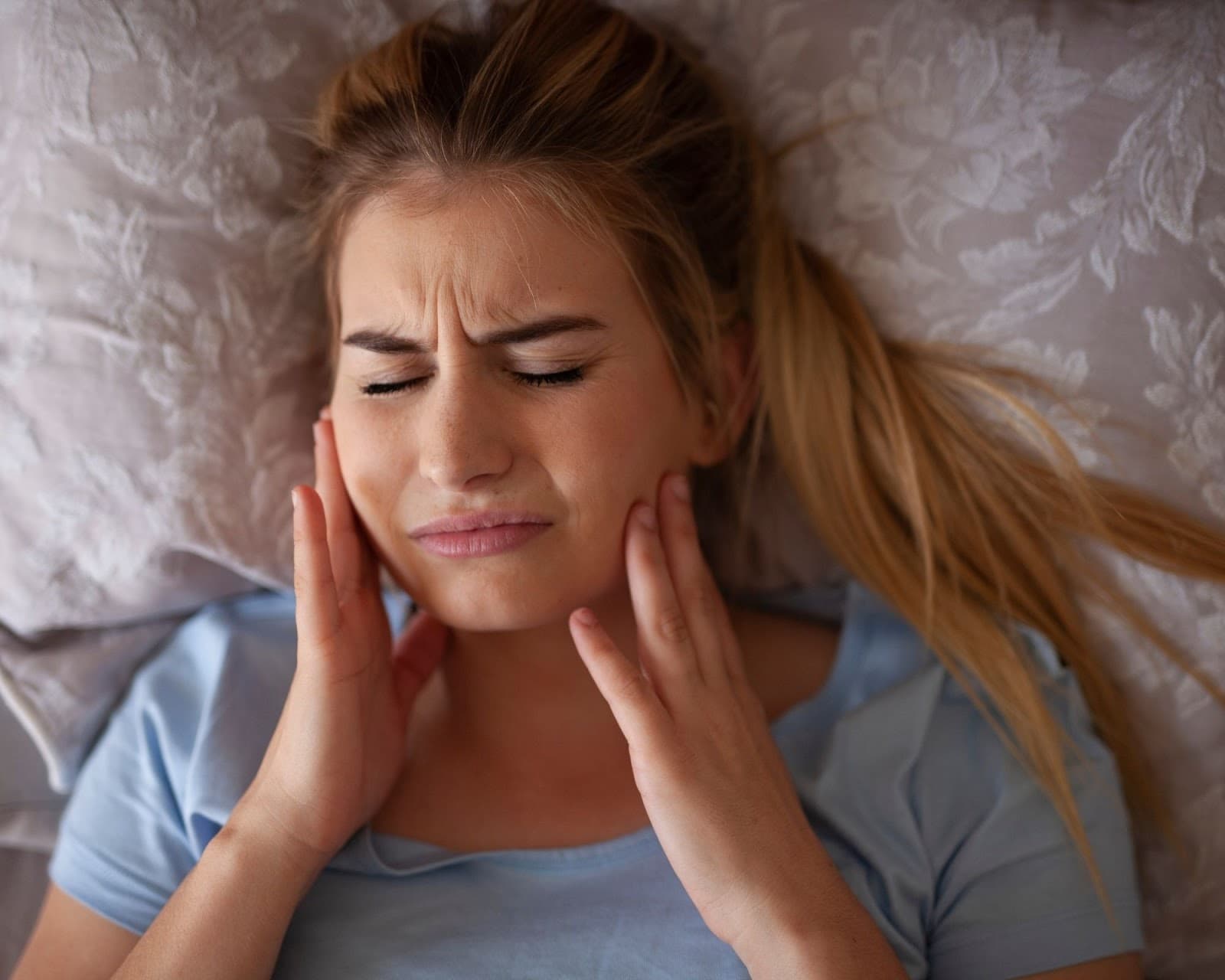
The truth about teeth grinding is that we all do it at some point in our life, many of us not realizing that we even do it! Grinding (often called bruxism) is the involuntary movement of your jaw that creates tooth-on-tooth contact.
Any age can be affected by bruxism. For some people, teeth grinding is a chronic nuisance and seems that follow them throughout life. For others, teeth grinding comes in acute episodes and is here one day but gone the next. Sleep grinding is common as many of us grind our teeth in our sleep without any recollection of doing so.
While bruxism isn’t curable, the is good news is that bruxism can be minimized. Often the wear on your teeth due to teeth grinding isn’t reversible, but catching symptoms while they are small and addressing the issues early will go a long way in preventing further damage.
It is essential to evaluate your teeth grinding and know what can be done about it. Grinding is very detrimental to our oral health as it can cause tooth wear, broken teeth, gum recession, and even jaw problems. Using one or many of the tips below can help you overcome teeth grinding and reduce its effects on your oral health.
Coping With The Pain Of Teeth Grinding
You may or may not experience pain associated with your teeth grinding. Pain may be in the form of jaw pain, tooth pain, or even head and neck pain. If you find that you do have pain in these areas, try any of these four tips to address the irritation:
- Avoid chewing gum as this can increase the tenderness of your jaw joint.
- Alternate a warm compression with an ice pack to help reduce inflammation.
- Stay away from hard-to-chew things like popcorn, nuts, hard candies.
- Make sure your pillow is supportive of your neck and head.
Mouth Exercises For Helping Bruxism
Specific mouth exercises can help to reduce inflammation and improve the movement of the jaw. These four simple steps can help to relax your jaw.
- First, put your hands gently on your TMJ, which is located in front of your ears.
- Next, slowly open your mouth.
- Hold this open position for 5-10 seconds.
- Slowly close your mouth and repeat this exercise several times throughout the day.
Massage
Head and neck massage can be a great way to relax these tight muscles. The relaxation that comes with massage works to reduce bruxism symptoms, but it can also minimize bruxism activity as it is often related or linked to stress.
Mouthguards
Mouthguards are often referred to as a sleep guard or night guard because they are worn at night. This is usually a custom-made appliance that fits your exact teeth. While a mouthguard doesn’t prevent tooth grinding, it does reduce the harmful effects of grinding by protecting your teeth while you sleep.
There are many different types of mouthguards available, and your dentist can guide you as to which one would be the best option for you.
Stress Reduction
Stress is a significant contributor to teeth grinding; thus, reducing stress levels can be an effective way of helping your body get better sleep and even less teeth grinding for you at night.
Are there certain things that you have found helpful in reducing your stress levels?
Medications
There are medications available on the market that may help you with bruxism; however, medication usually has side effects. You and your dentist may choose to try other options before medicines for this reason.
Have you already tried to fix your teeth grinding? What methods above worked or didn’t work for you? We would love to hear from you and partner with you in your bruxism treatment. Leave us a comment or give us a call today!






 (435) 656-4441
(435) 656-4441 826 S 3000 E Ste 2
826 S 3000 E Ste 2
Leave a Reply